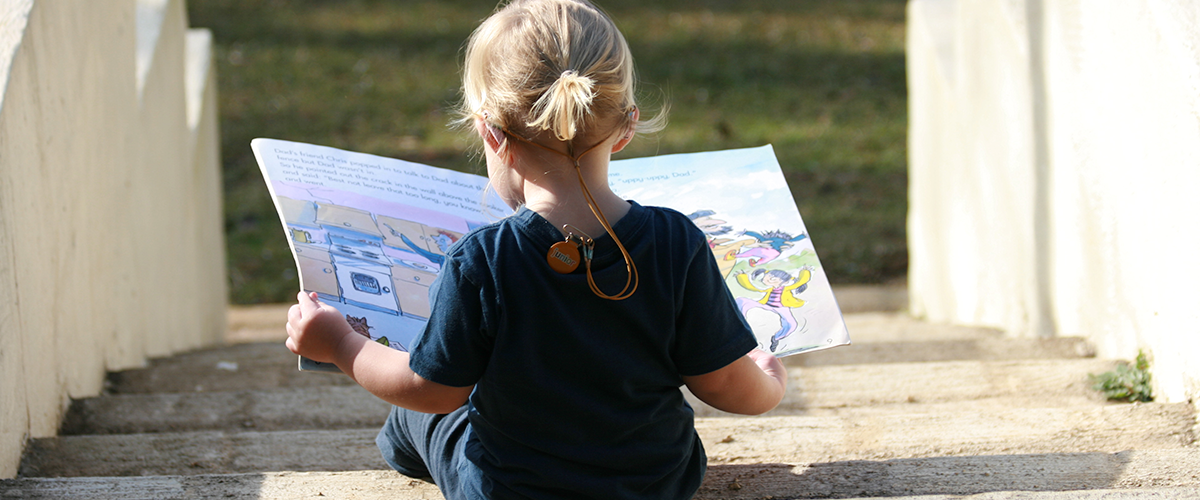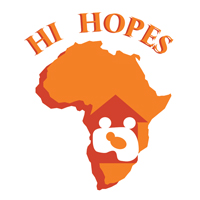
Publications and research
HI HOPES is a firm believer in the power of research as a learning tool, to improve its work but also as an outreach and advocacy tool.
The programme is based on the complementary relationship between a community intervention guided by research, which also functions as a research site that generates more data that can be used to further develop interventions and sharpen research insights. In this way we have found a combination between practical actions that make a difference in society and the generation of knowledge that has positive impacts on the quality of life of Deaf children and their families.
By ensuring that HI HOPES remains an evidence based programme the Centre for Deaf Studies is showing that this community programme will be of the highest quality as we collect data, evaluate our practice and then learn from it. The Hi Hopes dataset is the only longitudinal dataset of its kind in sub Saharan Africa or in Africa as far as we know.
Here are some of our Publications:
Cochlear Implantation in an Early Intervention Programme in South Africa [Claudine Storbeck and Selvarani Moodley]. Since structured information on age of implantation and language development of children with cochlear implants is not available in South Africa, the aim of this research was to begin data collection and analysis of implanted children enrolled in an early intervention programme. 15 children that have been implanted were analysed with regards to implantation age, language modality choice and development, laterality of implantation and schooling.
Audiological testing of Cochlear Implanted children in an Early Intervention Programme in South Africa [Claudine Storbeck and Selvarani Moodley]. The aim of this study was to determine protocols and standards that are being used for cochlear implant candidacy in the South African pediatric population. Data from an early intervention programme was audited to determine what testing procedures are being employed at specific ages. Results indicated an increased use of electrophysiologic methods of audiological testing and limited use of behavioral testing methods.
Sedation for paediatric auditory electrophysiologyin South Africa [Moodley and Storbeck] 2016
The HI HOPES data set of deaf children under the age of 6 in South Africa: maternal suspicion, age of identification and newborn hearing screening [Storbeck and Young] 2016
HI HOPES Narrative review of EHDI in SA [Storbeck and Moodley] 2015
The role of the neonatal nurse in early hearing detection and intervention in South Africa [Moodley and Storbeck]. There is a lack of direct recognition of children with disabilities and the importance of early screening and identification of disability, particularly within Africa. Within the South African healthcare setting, the role of screening for disability within a neonatal or paediatric nursery could be facilitated by the nurse.
Towards Integrated Practices in Early Detection of and Intervention for Deaf and Hard of Hearing Children [Storbeck and Calvert-Evers]. Studies show that undetected hearing loss can lead to irreversible language, speech and cognitive delays (Yoshinaga-Itano, Sedey, Coulter, & Mehl, 1998; Morton & Nance, 2006; Swanepoel, Delport, & Swart, 2007). More pressing than the mere detection of the hearing loss is early diagnosis and subsequent early intervention before the age of 6 months, thus enabling the child to develop and maintain age appropriate development with particular focus on language development.
Early Childhood Development (ECD) policies in South Africa – What about children with disabilities? [Storbeck and Moodley]. The field of early childhood development as it relates to government policy within the three South African government departments (Department of Education, Department of Social Development and Department of Health) are explored and discussed, with the aim of identifying strengths and weaknesses in our policies, gap areas of service delivery and to make recommendations on a way forward.
Early Hearing Detection and Intervention in South Africa [Swanepoel, Storbeck, Fridland]. Early hearing detection and intervention programs have become the standard of care to ensure optimal outcomes for infants with hearing loss, their families and society at large. The overwhelming majority of infants with congenital or early-onset permanent bilateral hearing loss are however born in developing countries like South Africa where services are scarce and awareness poor.
Early intervention in South Africa: Moving beyond hearing screening [Storbeck and Pittman] 2008
EHDI Africa: Advocating for infants with Hearing Loss in Africa [Swanepoel and Storbeck]. Children with hearing loss who happen to reside in Africa deserve the chance to develop according to their potential as much as their peers living in more affluent regions. This leaves a moral obligation to pursue ways of initiating, developing, and growing early hearing detection and intervention services in Africa.
Articles
Our Parent Organisation, THRIVE, has multiple quality articles on a host of subjects. These can be accessed here.
Blog
There is a certain expertise in simple experience. Reading from the experiences of people who have lived and walked the journey, can give invaluable insight!
DeaF Guy
http://guywmcilroy.blogspot.co.za/
Mothering Three Deaf Daughters
www.biancabirdsey.wordpress.com
*these blogs are the work of these individuals and do not necessarily reflect the view of HI HOPES, which is that of an unbiased approach to Family Centered Early Intervention.


